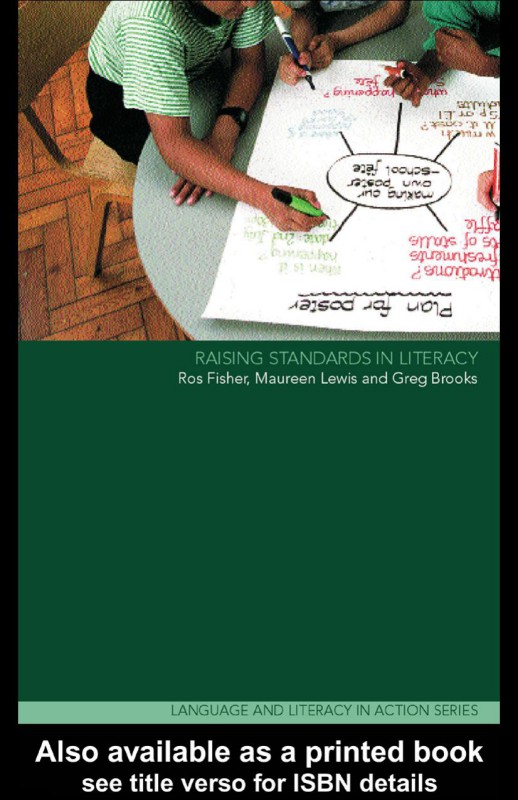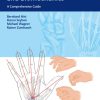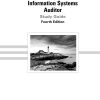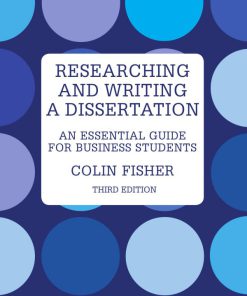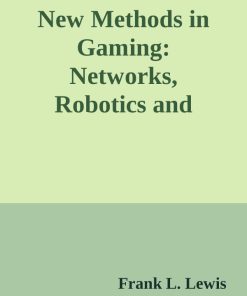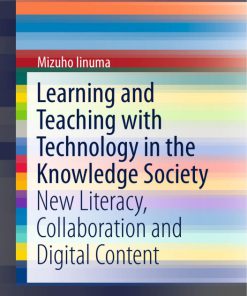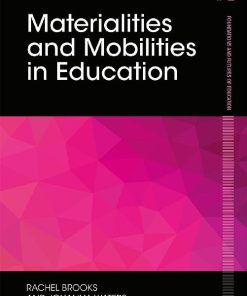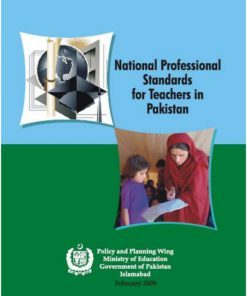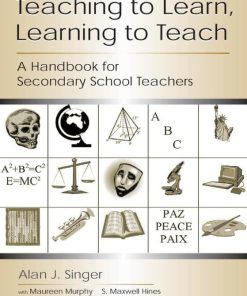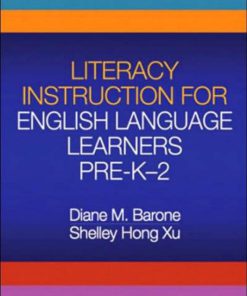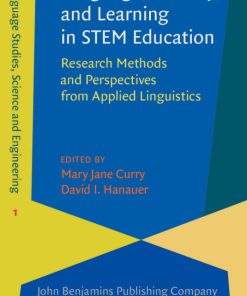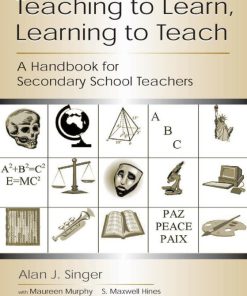(Ebook PDF) Raising Standards in Literacy 1st edition by Ros Fisher, Greg Brooks, Maureen Lewis 113450361X 9781134503612 full chapters
$50.00 Original price was: $50.00.$25.00Current price is: $25.00.
Authors:Ros Fisher, Greg Brooks; Maureen Lewis (edt) , Series:Education [295] , Tags:Social Sciences , Author sort:Ros Fisher, Greg Brooks & Lewis, Maureen , Languages:Languages:eng , Published:Published:Dec 2002 , Publisher:Rouledge
Raising Standards in Literacy 1st edition by Ros Fisher, Greg Brooks, Maureen Lewis – Ebook PDF Instant Download/DeliveryISBN: 113450361X, 9781134503612
Full download Raising Standards in Literacy 1st edition after payment.
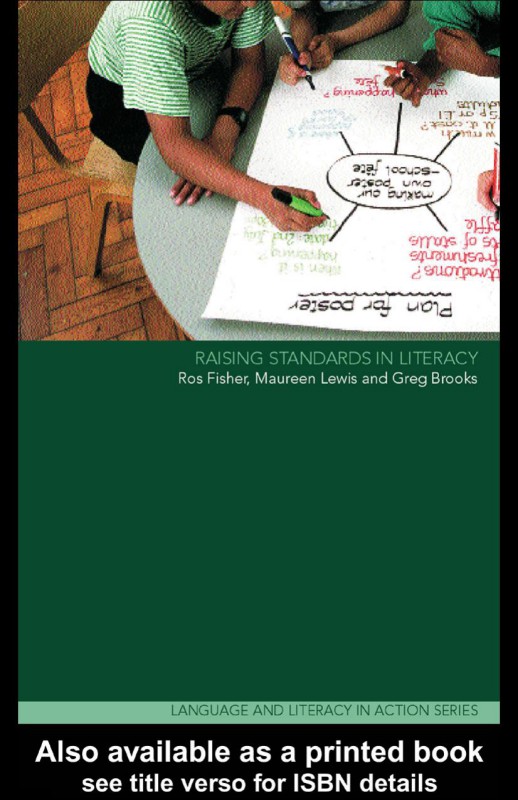
Product details:
ISBN-10 : 113450361X
ISBN-13 : 9781134503612
Author : Ros Fisher, Greg Brooks, Maureen Lewis
Raising Standards in Literacy represents the best current thinking and research about literacy. The book is the outcome of a high-profile series of seminars on raising standards in literacy, and includes contributions from an impressive group of international researchers and policymakers. By offering a rich and unique mix of contemporary perspectives on literacy education, this book provides an invaluable source of study and insight into the latest research and developments in the teaching of literacy. It includes sections on: * how research into literacy teaching can inform new approaches found in England, the USA and Australia * the ways in which literacy education is developing in England, the USA and Australia * the issues involved in assessing progress in literacy and the validity of research claims made about standards of attainment. The book celebrates the apparent success of current literacy initiatives at the same time as raising questions about the feasibility and relevance of such initiatives to the literacy co-ordinators and consultants and for all those undertaking further study or research in literacy education.
Raising Standards in Literacy 1st Table of contents:
Part I: Research Into the Teaching of Literacy
1. What Does Research Tell Us About How to Develop Comprehension?
Introduction
What Do Publishers, the National Curriculum and the NLS Have to Say About Developing Comprehension?
Conclusion
References
2. What Does Research Tell Us About How We Should Be Developing Written Composition?
Introduction
The National Literacy Strategy In England: Policy and Practice
Competing Discourses In Writing Research
The Professional Development of Teachers
Conclusions: Some Principles for Developing Writing – And Teachers of Writing
References
3. As the Research Predicted?: Examining the Success of the National Literacy Strategy
A National Target Already Achieved
Some Earlier Attempts to Raise Standards
Research and the National Literacy Strategy
School Effectiveness Research
Reading Process Research
The Role of Phonic Knowledge
Lessons from Overseas Literacy Research
International Comparisons
The National Literacy Project
The Question of Writing
Conclusion
References
4. What Do Effective Teachers of Literacy Know, Believe and Do?
Introduction
Effective Teaching and Effective Teachers
Effective Teaching and Effective Teachers of Literacy
Designing the Study
Main Findings of the Research
Links With Recent Developments In Literacy Teaching
Implications of the Research
Conclusion
References
5. Developing Literacy: Towards a New Understanding of Family Involvement
Introduction
Background
A Wider Theoretical Framework for Family Involvement
The Study
Recognising Differences: Contrasting Materials, Mediators and Purposes
Community Classes: A Different Kind of Learning
Reading Between Siblings: A Syncretism of Literacies
Combining Experiences from Home and School
Conclusion
References
6. The Words In Basal Readers: A Historical Perspective from the United States
Introduction
A Conceptual Mapping of Words In Text for Beginning Readers
Claiming Territory: A Historical Perspective On Issues
1955–1970 Period: The Great Debate
1970–1985 Period: The Great Deluge
1985–2000 Period: The Great Divide
2000 and Beyond: The Great Detour
Caveats
Mapping the Future
Note
References
Discussion: Research Into the Teaching of Literacy
References
Part II: What Counts As Evidence?
7. The Irrelevancy – And Danger – Of the ‘Simple View’ of Reading to Meaningful Standards
We Need Standards
The New Moral Panic
Giant Steps Backwards
The Danger of the Simple View of Reading
An Argument for Complexity
Notes
References
8. Understanding National Standards In Reading
Understanding National Literacy
National Tests of Reading
Reading Assessment Focuses
Using the Assessment Focuses
Question Difficulty
Understanding and Reporting On National Performance
Conclusion
References
9. Validity In Literacy Tests
Introduction
Constructs and Performances
Validity, Reliability and Manageability
Traditional Constructs of Literacy
Modern Theories: Increasing Complexity
Developing Mark Schemes: Recognising Varied Responses
An Interactive Reading Task
Conclusions
References
10. Trying to Count the Evidence
Clearing the Ground
The Link Between Pre-School Experience and Early Literacy Development
Initial Literacy Learning
Helping Struggling Learners
Adult Literacy
Conclusions
References
Discussion: What Counts As Evidence?
References
Part III: Developing Teacher Practice
11. Textbooks and Model Programmes: Reading Reform In the United States
How Are American Students Reading?
Reading Reform At the State Level: Textbooks
Reading Reform At the Federal Level: Reform Models
Next Steps
Conclusion
References
12. Teacher Education Programmes and Children’s Reading Achievement: A Report from the National Commission On Excellence In Elementary Teacher Preparation for Reading Instruction
The Current Teacher Preparation Context In the United States
The Commission Research Agenda
Features of Excellence
Teacher Educator Survey
Beginning Teacher Study
Some Speculations
Content Knowledge
Quality Apprenticeship Experiences
Autonomy
Conclusion
References
13. The Implementation of the National Literacy Strategy In England, 1998–2001
The Need for Reform In the Teaching of Literacy
Launching a National Literacy Strategy
The Framework for Teaching
Teaching Reading
Teaching Writing
Teaching Phonics, Spelling and Grammar
Inclusion
Professional Development and Initial Teacher Training
Reception Year
Intervention Programmes
Teaching Assistants
Evaluation
The Impact of the National Literacy Strategy
Notes
References
14. Examining Teaching In the Literacy Hour: Case Studies from English Classrooms
Introduction
The Background to Perceived Need for Change
The Research
Increased Focus On Teaching
Teaching Two Years On
Discussion
Conclusion
References
15. The Literacy Block In Primary School Classrooms, Victoria, Australia
Australian Context
The Victorian Context
Whole School Approach
Early Years Literacy Program
Literacy Teaching and Learning
The Two-Hour Literacy Block
Teaching Approaches Used In the Two-Hour Block
Teaching Matched to Student Needs
Targets and Outcomes
References
16. Globalisation, Literacy, Curriculum Practice
Introduction
The Industrial School Meets New Times
Literacy Teaching and Learning In the New White Diaspora
Critical Literacy As a Technology for Remediating Globalisation
People also search for Raising Standards in Literacy 1st:
raising standards for teachers
raising standards meaning
raising standards
raising literacy standards in secondary schools
standards-based literacy lesson

